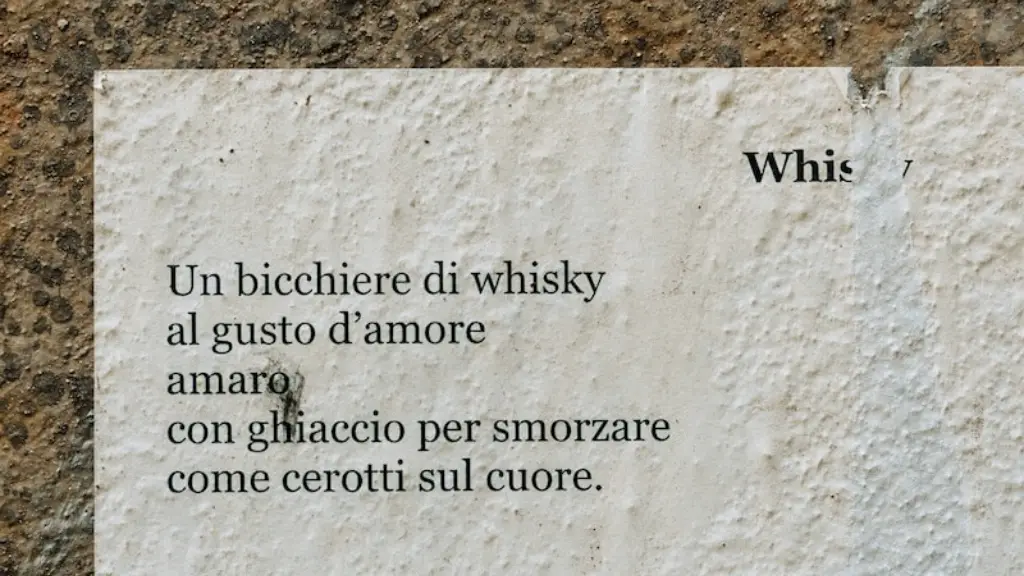Romanitic Pillar of the Harlem Renaissance
Langston Hughes was a famous African-American poet, novelist and playwright during the 1920s to 1940s. He was a major figure in the artistic movement known as the Harlem Renaissance. Hughes played a large part in the promotion of the African-American culture, as well as provided an emotional outlet for the struggles of African-Americans at the time. His vivid and often spiritual poems, powerful fiction and innovative plays showcased his talents and continued to inspire future generations of African-Americans.
Hughes was born in 1902 in Joplin, Missouri, and at an early age he was exposed to literature, especially poetry, which eventually shaped his own writing style. He studied at the Central High School in Cleveland, Ohio, and at the age of 13 published his first poem in the school newspaper. Although he did not finish his studies and traveled extensively in the USA and Europe, his love for the written word did not fade and he continued to be dedicated to the written arts.
In 1921 Hughes moved to Harlem, New York where he became very active and productive in the Harlem Renaissance. He wrote a variety of stories and poems, including The Weary Blues, which was published in 1926, and Not Without Laughter, which was published in 1930. During his years at Harlem, he became known for his talent and spirit, which had a great influence on the other writers, which gained him the title of “Poet Laureate of the Negro Race.” Hughes was also exceptionally skilled at expressing the struggles of African-Americans and making their experiences relatable to other people and cultures.
He is especially famous for “Jazz Poems,” which became popular in jazz nightclubs during the era of the Harlem Renaissance and greatly affected its culture. Many of his poems were based on the themes of being an African-American and the challenges they faced due to racism. His collection of poems Montage of a Dream Deferred showcased his voice, ideas and identified the potential of the African-American people. It was a call for the end of racism and a chance for African-Americans to become equal citizens.
Throughout his career, Langston Hughes continued to be one of the most influential figures of the Harlem Renaissance and its culture. He inspired many other African-American writers, such as Zora Neale Hurston or James Weldon Johnson. His works provided a powerful voice to many of the issues and struggles that African-Americans faced throughout the period. His dedication to the written word inspired a new wave of African-American writers, poets and playwrights, making him one of the most significant contributors to the Harlem Renaissance.
Innovative Artistic Vision
Langston Hughes had a unique way of expressing himself and connecting to the audience. He wrote with a raw poetic style that resonated with people at the time. Hughes was a pioneer in using metaphors in his poetry and he was very effective at using them to capture the attention of his readers. Instead of using dull and direct ways to express emotions, Hughes used original storytelling and metaphors to make powerful connections to his audience. It was also important to him to make sure his writing was accessible to all of his readers. This is why he chose to use writing with simple language, which was easily understood.
Another topic that was present in many of Hughes’s works was the idea of the “New Negro”, which respected the accomplishments of African-Americans, while also striving to embrace them as equal citizens. Many of his stories and poems used this theme to create a sense of pride and empowerment in the African-American culture. This is one of the ways in which Langston Hughes advanced the art movement known as the Harlem Renaissance.
One of Hughes’s most recognizable works is The Weary Blues, which was a compilation of poems about the experiences and feelings of African-Americans during the 1920s. It not only shows the struggles that African-Americans faced during this period, but it also highlights the power of creativity and determination. His work showcased that African-Americans could still persevere even in the most difficult of times.
In the years that followed, Hughes through his works highlighted the need for the African-American people to have the same rights and opportunities as any other American citizen and that they had the potential to be just as successful. He also served as an inspiration to many of the future African-American writers and poets that followed in his footsteps.
Legacy of Influence
Langston Hughes’s career was dedicated to writing and raising awareness of the African-American plight. He wrote poems, stories and plays that touched many hearts and expanded the minds of those that read his works. He is known as one of the most influential figures of the Harlem Renaissance and his contributions to the movement are seen to this day.
Today, Hughes is known for his poetic works that captured emotion, talent, and the experiences of African-Americans during the 1920s. His works have continued to be influential in modern-day literature and African-American culture. His works have been included in many college curriculum and his writings inspired a generation of writers and poets.
Langston Hughes’s legacy proves that his words are powerful and timeless, and that the struggles and feelings of African-Americans are real and deserves acknowledgement. He inspired a generation of writers and poets to speak out in their own unique way and to express their emotions and experiences in a new way.
He will always be remembered as a leader in the Harlem Renaissance and as one of the most influential figures in African-American writing.
Originality and Impact
Langston Hughes was a highly influential figure in the Harlem Renaissance and his work has had a great impact on African-American literature and culture. He was a pioneer in using metaphors to express himself and he wrote in a language that all could understand. He wrote stories and poems that captured the feelings and struggles of African-Americans during the 1920s and promoted the idea of the ‘New Negro’ by highlighting the accomplishments of African-Americans.
By using his writings to challenge societal norms and providing an emotional outlet for the African-American people, Hughes helped to advance the art of the Harlem Renaissance. He was one of the first African-American authors to write about the experiences of African-Americans with accuracy and he inspired a generation of African-American writers. His work will continue to be influential in African-American literature and culture for many years to come.
Critical Recognition
During his lifetime, Langston Hughes was widely recognised and praised for his works. He won many awards including the NAACP’s Spingarn Medal in 1942 and the Anisfield-Wolf Book Award in 1957. In addition, many of his works were well-received and some were adapted into plays, films and musicals. His writings were included in many college courses and he has been the subject of numerous books and articles.
The impact of Hughes’s work continues to be felt to this day. His work has been adapted into plays, films and musicals, and his poems remain popular among readers today. His legacy has been celebrated in schools and universities, and he has served as an inspiration for many African-American writers.
Langston Hughes’s legacy will continue to be remembered and celebrated for many years to come. His works have shaped and influenced African-American literature and culture and will continue to inspire future generations.
Continued Relevance
Langston Hughes’s works continue to remain relevant in modern-day society. His works capture the voice and struggles of the African-American community in a powerful and meaningful way. His poems and stories are filled with tenderness and passion and evoke feelings of pride and hope.
His works have been influential in the African-American culture, as well as American culture as a whole. His stories have been adapted into plays and films, and his poems continue to be studied in many colleges and universities. He has also influenced many future African-American writers and poets, including Maya Angelou, who wrote about Hughes’s impact on her works. Hughes’s legacy has truly stood the test of time.
Langston Hughes has had a lasting influence on the Harlem Renaissance and on the African-American culture. His stories and poems captured the struggles and emotions of African-Americans during the 1920s and provide an accurate reflection of the African-American experience. He was a pioneer in African-American literature and his work continues to be admired and celebrated by readers today.





